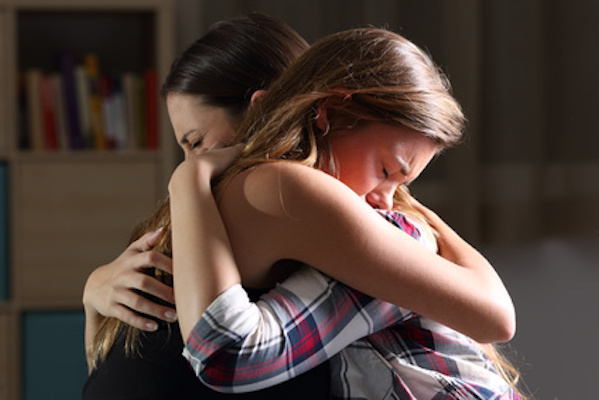As many as 1 in 4 pregnancies end in miscarriage but no one likes to talk about it. The subject is taboo, leaving far too many women to suffer on their own. Some people blame the women for it and others mistakenly equate it with abortion. No matter what your view on abortion is (I support a woman’s right to choose), it is unfair to attack any woman for something that is completely out of her control. The truth is she could be affected by her miscarriage for years to come.
Early Pregnancy Loss and Its Aftermath
Low dose aspirin decreases risk for future miscarriage.
Diagnosis Life summary:
Pregnancy loss is a painful experience. Preventing it has to be a priority, especially for people who have gone through it before. A study in Annals of Internal Medicine (https;;/doi.org/10.7326/M20-0469) looked to see if low dose aspirin could help women who had previously had a miscarriage and still wanted to get pregnant. The researchers recruited 1,227 women between the ages of 18 and 40 and assigned them to placebo or 81 mg aspirin 5 to 7 days per week. Women on aspirin had 8% more positive pregnancy tests, 15% more live births, and 6% fewer pregnancy losses than those who took the placebo. If you have had miscarriages in the past, you may want to ask your doctor if this option is right for you.
Miscarriage is associated with post traumatic stress, anxiety, and depression in women.
Diagnosis Life summary:
Miscarriage leaves a lasting impact on a woman. Not only does she have to cope with physical changes in her body, she may grieve the loss of a life. A study in American Journal of Obstetrics and Gynecology (https://doi.org/10.1016/j.ajog.2019.10.102) surveyed 537 women who just lost a child to miscarriage and tracked their mental health over time. After 9 months, 16% reported post traumatic stress from the miscarriage, 17% anxiety, and 5% depression. This is notable when you see that women who had viable pregnancies in the same study reported lower rates of anxiety and depression at 13% and 2%. This is not about hormones. It is about mental health and how we heal. If you know a woman who has suffered a miscarriage, reach out. She may need your support and may need to seek treatment.
Miscarriage triggers post traumatic stress in partners too.
Diagnosis Life summary:
When miscarriage happens, the woman is not the only person involved. Those same researchers turned an eye to the partners who also wanted and lost a child. A study in Ultrasound in Obstetrics and Gynecology (https://doi.org/10.1002/uog.23147) looked at the psychological impact of pregnancy loss on 192 couples. After 9 months, women who suffered a miscarriage reported rates of post traumatic stress at 21% but their partners had higher rates than expected rates at 4%. Women had higher rates of anxiety and depression too but so did their partners. Although psychiatric issues were more common in the women, partners suffer too. Don’t leave out them out of the discussion. Post traumatic stress can be serious and may need treatment.


Leave a Reply